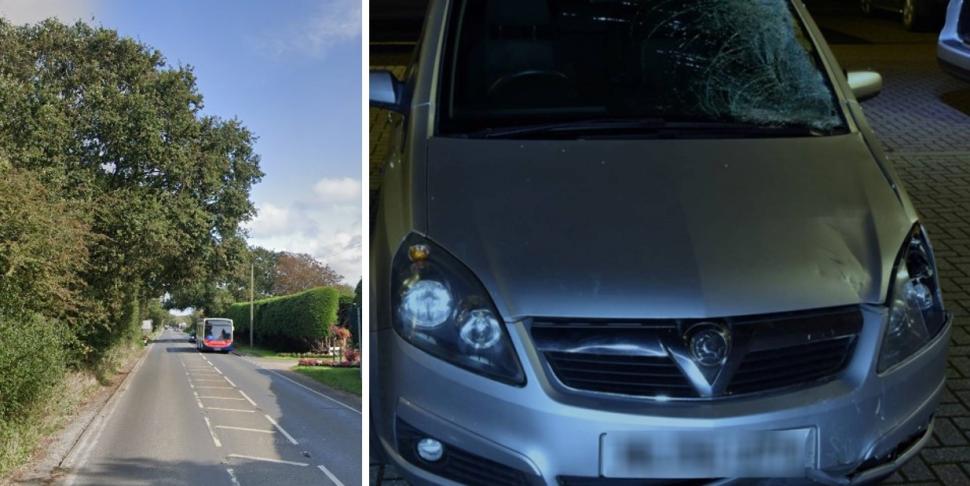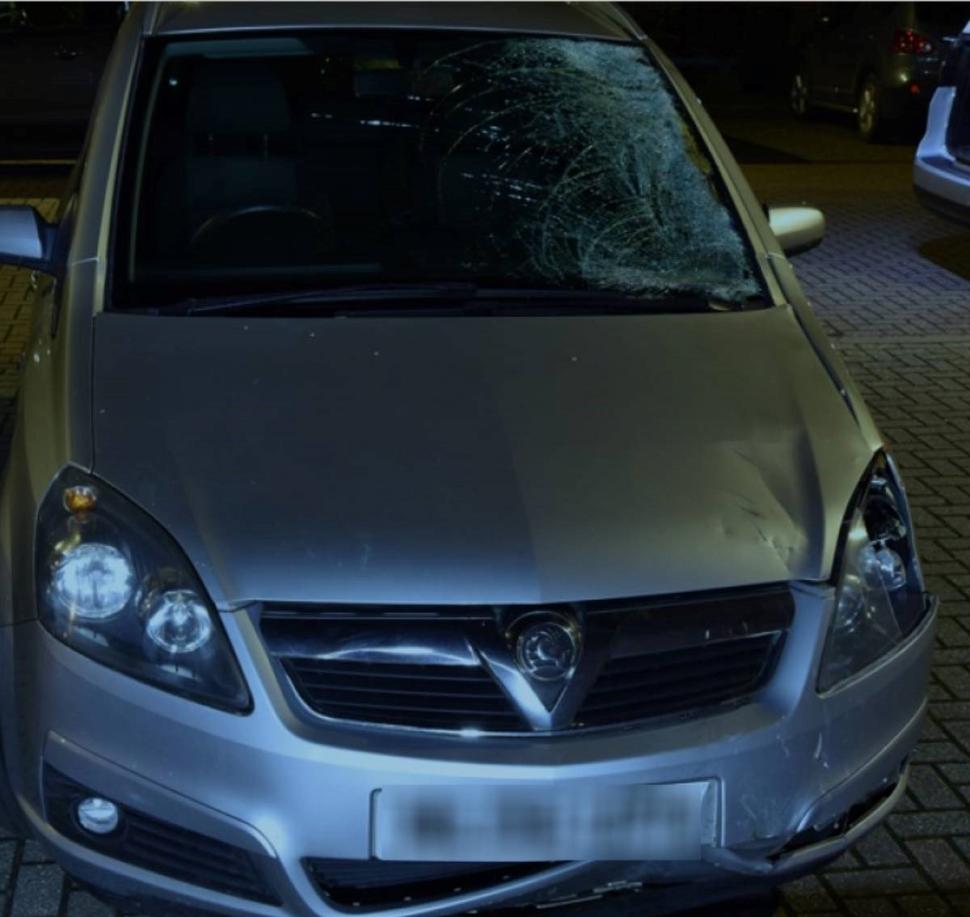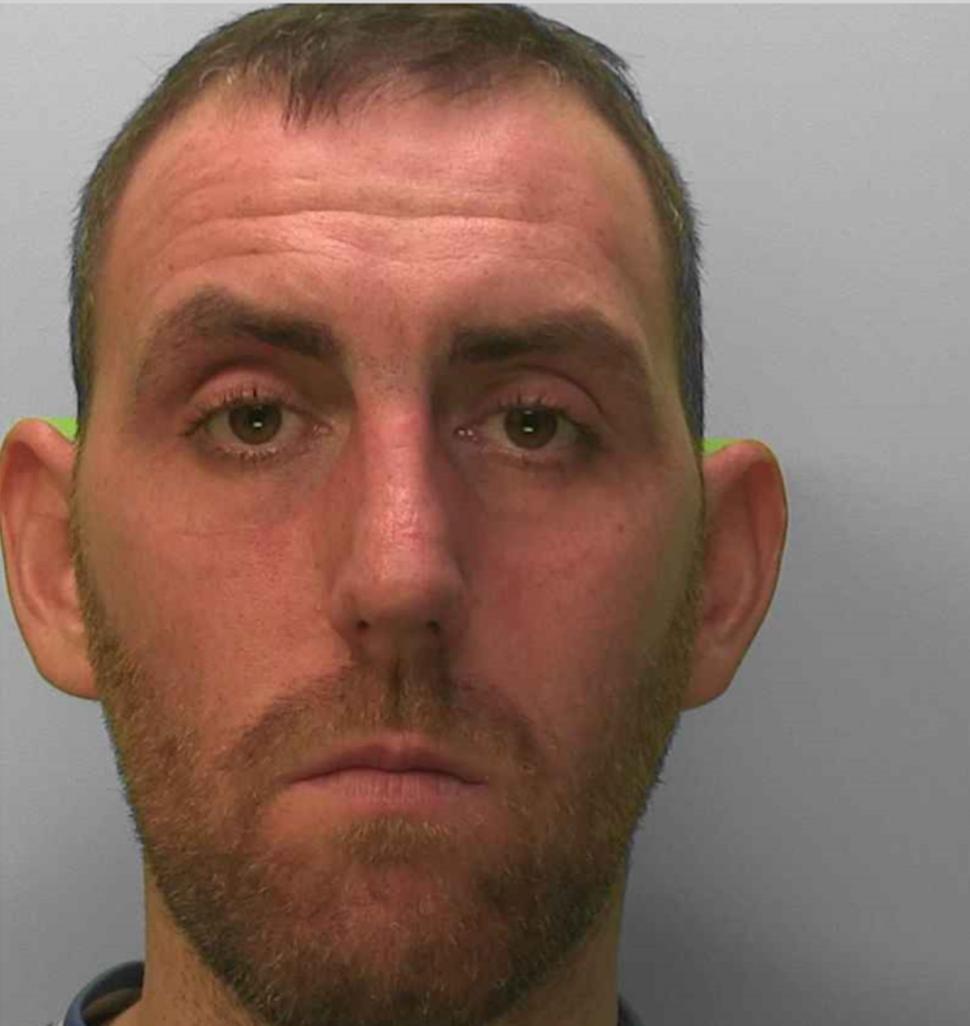- News
- Reviews
- Bikes
- Accessories
- Accessories - misc
- Computer mounts
- Bags
- Bar ends
- Bike bags & cases
- Bottle cages
- Bottles
- Cameras
- Car racks
- Child seats
- Computers
- Glasses
- GPS units
- Helmets
- Lights - front
- Lights - rear
- Lights - sets
- Locks
- Mirrors
- Mudguards
- Racks
- Pumps & CO2 inflators
- Puncture kits
- Reflectives
- Smart watches
- Stands and racks
- Trailers
- Clothing
- Components
- Bar tape & grips
- Bottom brackets
- Brake & gear cables
- Brake & STI levers
- Brake pads & spares
- Brakes
- Cassettes & freewheels
- Chains
- Chainsets & chainrings
- Derailleurs - front
- Derailleurs - rear
- Forks
- Gear levers & shifters
- Groupsets
- Handlebars & extensions
- Headsets
- Hubs
- Inner tubes
- Pedals
- Quick releases & skewers
- Saddles
- Seatposts
- Stems
- Wheels
- Tyres
- Health, fitness and nutrition
- Tools and workshop
- Miscellaneous
- Cross country mountain bikes
- Tubeless valves
- Buyers Guides
- Features
- Forum
- Recommends
- Podcast
news
 Distracted driver jailed for six years for killing cyclist in hit-and-run crash on A286, Birdham (Sussex Police)
Distracted driver jailed for six years for killing cyclist in hit-and-run crash on A286, Birdham (Sussex Police)Distracted, phone-using, uninsured driver jailed for six years after killing cyclist in hit-and-run collision
A motorist who was distracted by his phone when he struck and killed a cyclist, before fleeing the scene, has been sentenced to six years in prison and disqualified from driving for eight years.
Phone records showed that driver Terry Varndell had made several calls and texts in the moments leading up the fatal collision that killed David Breen near Chichester on 26 October 2021, in a display of dangerous driving that Sussex Police investigating officer Ian Foxton said demonstrated “the devastating consequences of being distracted behind the wheel”.
26-year-old cyclist Breen was riding on the A286 Main Road at Birdham when he was fatally struck at around 8.10pm by Varndell, who was not insured to drive his Vauxhall Zafira at the time of the tragic incident.
Mr Breen, originally from Co. Kerry, had been living in Chichester, where he was due to move into a new flat, and was cycling home after playing football when he was killed.
Last week Portsmouth Crown Court heard that several other motorists had seen the 26-year-old cycling with lights on his bike along the straight road, and had passed him safely.
However, Varndell, according to his phone records, had made numerous texts and calls while driving that evening, including calls in the moments immediately before he struck the cyclist.
The 37-year-old motorist failed to stop at the scene, where Mr Breen died minutes after being hit.
Terry Varndell (Sussex Police)
Varndell was found guilty of causing death by dangerous driving last week, and sentenced to six years in prison. He was also disqualified from driving for eight years, with a requirement to complete an extended driving test before being permitted to drive again.
In a victim impact statement read in court, Mr Breen’s mother Anne, father Anthony, and brothers Shane and Anthony revealed that they still feel raw about the cyclist’s death, which they said was the “hardest day of our lives”.
The 26-year-old was “funny, caring, ready with the banter, cheeky, lovable and always on the go”, his family said.
Addressing the dangerous behaviour displayed by Varndell in the moments leading up to Mr Breen’s death, Detective Sergeant Foxton said: “Varndell drove dangerously and failed to show adequate awareness of David Breen who was cycling home.
“Sadly, David never made it home that night, and his death has had a lasting impact on his family and loved ones.
“We know that driving while distracted such as by using a mobile phone is one of the ‘fatal five’ behaviours that lead to people being killed on our roads. This case shows the pain and heartache that being distracted and driving dangerously can cause.
“We were determined to get justice for David’s family, and are pleased that a dangerous driver has been taken off our roads. But our work to warn others about the dangers of using a mobile phone, as well as the other ‘fatal five’ factors continues 24/7, every day of the year.”
This latest sentencing of a driver who killed a cyclist while distracted by their phone comes in the same week another motorist, who was searching for a song on his phone when he hit and killed a cyclist in Leicestershire – while also three times over the legal limit for a by-product of cocaine use as he drove his two children to football practice – was jailed for three years and nine months for causing the “utterly avoidable death”.
Matthew Bates initially blamed the collision on 64-year-old cyclist Colin Banks hitting a kerb and swerving into his path, something which was later disproved by collision investigators after one of the driver’s sons told paramedics: “Daddy was trying to get a song on that he liked. He didn’t see a bike and we hit it”.
After obtaining a PhD, lecturing, and hosting a history podcast at Queen’s University Belfast, Ryan joined road.cc in December 2021 and since then has kept the site’s readers and listeners informed and enthralled (well at least occasionally) on news, the live blog, and the road.cc Podcast. After boarding a wrong bus at the world championships and ruining a good pair of jeans at the cyclocross, he now serves as road.cc’s senior news writer. Before his foray into cycling journalism, he wallowed in the equally pitiless world of academia, where he wrote a book about Victorian politics and droned on about cycling and bikes to classes of bored students (while taking every chance he could get to talk about cycling in print or on the radio). He can be found riding his bike very slowly around the narrow, scenic country lanes of Co. Down.
Latest Comments
- Hirsute 22 min ago
I doubt that as they will still argue that using it whilst stationary isn't a problem....
- Hirsute 23 min 41 sec ago
I believe the Road Traffic Act 1988 disagrees with you.
- Secret_squirrel 2 hours 8 min ago
Yes. Just like there's no push rod brakes or U brakes any more. Get with the program granddad.
- chrisonabike 2 hours 5 min ago
Actually everyone is wrong, it was the 16th century as shown in the glass at Stoke Poges church *. Plus horns predate bells as a way of alerting...
- dreamlx10 2 hours 45 min ago
Looks like the perpetrators were not Italian
- Zebulebu 11 hours 12 min ago
You can't enter BC races because you don't have a BC license?...
- Hirsute 18 hours 56 min ago
Another pathetic sentence for killing a cyclist....
- HoarseMann 20 hours 14 min ago
...and maybe a third? Don't forget the M49 'ghost' junction: https://www.bristolpost.co.uk/news/bristol-news/work-m49-ghost-junction-...
- ubercurmudgeon 22 hours 39 min ago
What a shit world we've created.



Add new comment
22 comments
I feel the laws really need updating for uninsured or unlicenced drivers. This person was in control of an unlicenced weapon, 1.5 tonnes of metal.
The minimum sentence for unlicensed possession of a firearm is 5 years.
The same should apply in cases like these, 6 years is too little given the fact he killed someone in addition to driving a weapon illegally.
Don't worry! The last government (or was it the one before, or the one before that?) was all over this, and announced:
A comprehensive review of road traffic offences.
And more recently:
New offenses of causing death or injury by dangerous cycling (was to be backed by the now-current government)
er...
BUT the guidelines for maximum penalties for some offenses were increased (if drivers are brought to court, and if charged with the more serious offense and the system doesn't just accept a guilty plea to a lesser one, and if convicted, and if the judge thinks the case is of sufficient gravity...)
So I guess we can put this one to bed for another generation.
As I said last Friday
-
"Driver jailed for death of Ecuador politician's daughter"
I wonder if the sentence would have been less if the victim was a cyclist or not related to a politician.
-
Victim pedestrian:
https://www.bbc.co.uk/news/articles/cgl2klz0gw9o
"A speeding Mercedes driver has been jailed for 10 years"
Victim cyclist:
"...jailed for six years..."
"...jailed for three years and nine months..."
our work to warn others about the dangers of using a mobile phone...continues 24/7, every day of the year
Except when some interfering cyclist wastes our time by sending in incontrovertible evidence of phone use while driving when there wasn't even a collision so the phone use must have been safe- then, we just can't be bothered, bin the evidence and ignore the report. This Ford Focus is PK55 FXA. Police in the UK are simply a great steaming mound of lying and hypocrisy.
https://upride.cc/incident/ld71uom_amazonprime_handheldmobilephone/
Exactly. It's all very well having discussions about what the appropriate sentence is for the worst case events, but most of the time that's an irrelevance, because most routine phone users don't expect to get caught and they don't think they are going to cause a crash.
It would be much more effective to focus resources on catching and punishing those who use phones before anyone gets hurt, and for it to happen promptly with immediate consequences. IMO six points on your licence is all very well, but if you assume the odds of getting caught once are slim, and twice is negligible - does that worry the people who are arrogant or selfish enough to assume they'll be fine?
most routine phone users don't expect to get caught
It's slightly different in Lancashire- here it's almost all routine phone users know that even if they're caught with indisputable evidence Lancashire Constabulary won't take any action because they don't believe it's a real offence and have decided that particular law, along with most of the other road traffic laws, doesn't apply here. For the few who haven't seen it yet, this is another offence by an Amazon Prime driver in exactly the same place- both offences reported with video and stills, no response to either of them
Yes, that's what I mean. People need to expect consequences are likely, or at least plausible.
Politicians, cheered on by certain media outlets, love to talk about tougher penalties and longer prison sentences to crack down on crime, but in reality people who break the law (all kinds of laws) rarely stop to think about how big a sentence might be for a particular crime. If they don't expect to get caught or for there to be any consequences then they aren't thinking about whether it's three, six or twelve years in prison or points on their licence.
On the other hand, hearing of a friend or colleague who got points for using their phone while driving is going to give more people pause for thought.
IMO the police and those in government responsible for road safety really are missing a trick by not making it easier for traffic offences caught on camera to be prosecuted. I fully accept that there are cases where ambiguity is too great to pursue a prosecution, but rather than simply dismiss those cases there could be better advice and a more structured submission process to help witnesses provide evidence of sufficient quality.
To be honest, even that's probably not immediate enough, and too susceptible to being rationalised away ("they're irresponsible but I'm not", or "it must have been completely undeserved", etc.).
Maybe roadside signs ("250 drivers fined for phone use in the last 6 months") might make it more front of mind in the moment (though not so much if it's "1 driver..."), but the harder part to solve which would really shift the needle is how to make it socially unacceptable, rather than just potentially consequential.
How did they manage it with drink-driving?
I know that a lot of people do still drink- and drug- drive, but it is socially unacceptable widely enough across the population to have an effect.
Drink driving?
Over half a century of government-funded national campaigning. (An interesting review of this from 2012 here).
Fairly early recognition of the economic impact e.g. worth spending x million on campaigning per year because the cost of death and injury from drink driving is a lot more than x. (Which suggests phone campaigning may be harder - I think mobile phones and their use is generally seen as a "good" / has economic value - there have been more equivocal attitudes towards drinking especially in the past...)
Clear legislation. Test which isn't commonly disputed successfully in court (as opposed to "we saw them with a phone in hand..."). Yes, we can now sometimes get phone use logs, and for drink driving defences have had luck with the "I had to go home and have a couple of swift ones to calm my nerves" / "we only managed to test after X hours" etc. ...
Effects of breaking the law often felt directly by the perpetrators (this definitely applies to speeding and also phone use but I wonder if the latter is more often associated with "hit a vulnerable road user while not looking but didn't crash myself"?)
Getting suppliers on-side (e.g. the drinks / pub trade). Do phone companies (never mind makers of apps...) believe this is an issue for them? What are they prepared to do?
Perhaps more likely to get away with phone use than driving intoxicated (harder to detect / lower rate of crashes per instance of breaking law)?
Phones - we're fighting against normalisation. Phone use is now something which everyone may do at any time / everywhere. Indeed people are often expected to be available straight away...
I can't be sure, but I think a fair chunk of those still drink driving are people with drinking problems, as well as the usual sorts who are convinced they'll be fine and/or the ones who moan about the nanny state.
I'd like to think that being on the phone while driving is also socially unacceptable, but it's not like getting into the car on front of friends after sinking a few pints. The people whose opinions you care about don't see it. I think there's a lot more mileage in getting out the message of the consequences of a 'momentary lapse in concentration' caused by phone use, along with enforcement.
There are speech to text options on lots of phones, so in theory if you get a text it may have been narrated. Not that I think that's much less distracting.
Proper enforcement is going to be the only thing that works for some. Some people won't stop until they are banned, or believe it's very likely it will happen.
The Birdham straight is notorious for some shocking driving. Even though it's been 40mph for years, it's an awful road to cycle on, being the main route on/off the Witterings peninsula.
The cycling infrastructure is beyond pointless, bordering on dangerous: https://maps.app.goo.gl/BpfzYr1YNYiV96gi6
Another example of a road with a pointlessly wide hatched median, which would be far better used to provide a wide, segregated, cycle lane. The few pedestrian islands there are should be converted to zebra crossings.
"But our rural A-roads are too narrow..."
Compare and contrast - a random location in NL. (I am not sure the NL version is quite comparable to an A-road - but the location / space is kind of similar).
The NL version does use a bit more space (especially to make the turn safer for drivers) and the bi-directional cycle path is set back (also look how much better the side road crossing is). Hard to tell but it doesn't look super wide - but for a countryside location I'm sure it's adequate. Overall width is really narrow here - but still with a separate cycle path.
I think one of the first things they'd do in the UK version (apart from physically separating motor vehicles and cyclists) is bar ANY overtaking - maybe with a physical barrier. I'd bet there have been "incidents" due to that near here... Surely no drivers could object to "safety" for themselves? If it saves one car occupant...!
That road is shameful. The space used in the median should be a cycle lane. It wouldn't even cost much. It was the road that killed David Breen, because it didn't protect him from the dangerous driver.
A couple of notes to the pic of the Dutch road and cyclepath. The sharks' teeth show that the drivers in the side road must give way to the cyclists on the cyclepath- much better than the usual UK solution of having to stop for every side road.
Another major difference in outlook between UK and NL - I'm not sure in NL such a road would be thought safe (or not at that given speed / without changing to road layout itself to signal lower speeds) for non-signalised pedestrian crossings.
OTOH in the UK we probably can't imagine a "fast road" having full-stop pedestrian crossings. How would you get anywhere? And nobody walks there anyway...
Yep, no provision for crossing pedestrians. A couple of years ago I cycled down the old canal to the marina and had to cross the road here:
https://maps.app.goo.gl/LvJETpuhumom5F6SA
It was a summer afternoon and there was a constant stream of traffic in both directions. I must have waited 10 minutes before a couple of kind drivers actually saw me and thought to slow to let me cross. During this time several cars were let in/out of the marina junction by drivers on the main road!
The NL manage to do so much better, even with a far higher population density than we have in the UK.
I like how someone has put a shared footway sign incorrectly above the cycle lane.
You only have to look at that road to see there's plenty of space for a shared footway down one side. Just remove the hatching and extend the footway into the road. You could easily fit a 4-metre-wide facility down there.
I see motorists on their phone all the time. It's just accepted. It's not difficult to see them and most make little attempt to conceal the fact. Police could rake them in in droves for little effort. But that would be "war on motorists".
It's so common for me to be waiting in a group on someone who is coming by car and we'll get a text saying 'there in 5' or something like that, obviously sent while driving. I haven't once seen even a raised eyebrow about receiving this type of message. It's different for drink driving, but the outcomes are the same as far as I know.
You never say anything to the people concerned then?
Sometimes. I personally don't get any '5 minutes away' texts though, or only once.
Does having a back and forth text conversation with someone you know is driving make you partly liable for any collisions they cause? Has this ever come up in a court case?
Meanwhile 9 years jail and 8 year 5 month ban for stealing a car.
https://www.staffordshire.police.uk/news/staffordshire/news/2024/august/...